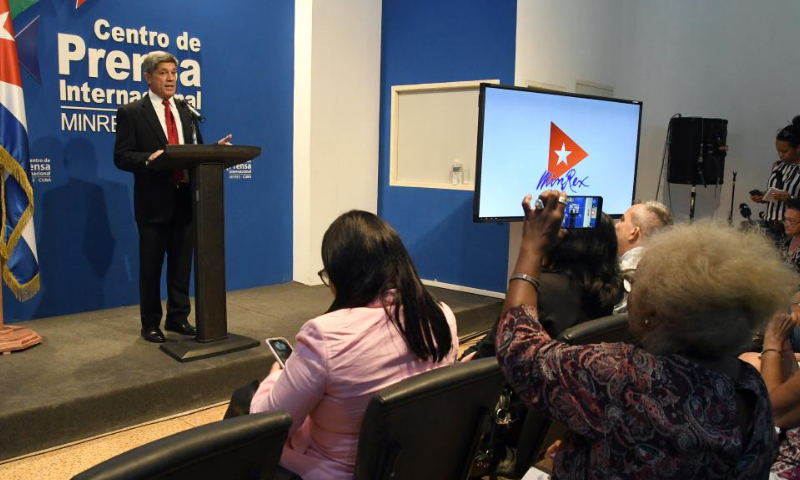
Cuba's Deputy Minister of Foreign Affairs Carlos Fernandez de Cossio speaks at a press conference in Havana, Cuba, Nov. 15, 2022. A new round of migration talks between the Cuban and U.S. governments were held in the Cuban capital of Havana, said Carlos Fernandez de Cossio. Photo: Xinhua
The US trade embargo against Cuba has invigorated the illegal migration of Cubans to the United States, said the island's Deputy Minister of Foreign Affairs Carlos Fernandez de Cossio Tuesday.
"We reiterate our concern about the measures that stimulate the illegal migration, including the privileged treatment received by Cuban migrants who reach the US border and the Cuban Adjustment Act," said the deputy minister at the press conference, adding that US sanctions are a policy aimed at "repressing the standard of living of the population."
The remarks came after a new round of migration talks between the Cuban and US governments in the Cuban capital of Havana. Talks between the two countries resumed in April, the first such conversations on migration in four years after a long gap under former President Donald Trump.
According to the Cuban government, US sanctions -- a web of US laws and regulations that complicate business and financial transactions with Cuba -- have cost Cuba's economy a total of 154.2 billion US dollars over the past six decades.
First imposed in 1962, the sanction was broadened by former US President Donald Trump, who put in place 243 more sanctions, including banning all flights from the United States to Cuban destinations except for Havana and capping remittances Cuban Americans can send to their families back home.
A record 220,000 Cubans were caught at the US-Mexico border in fiscal year 2022, which ended on Sept. 30. The vast majority were allowed into the United States to pursue immigration.
